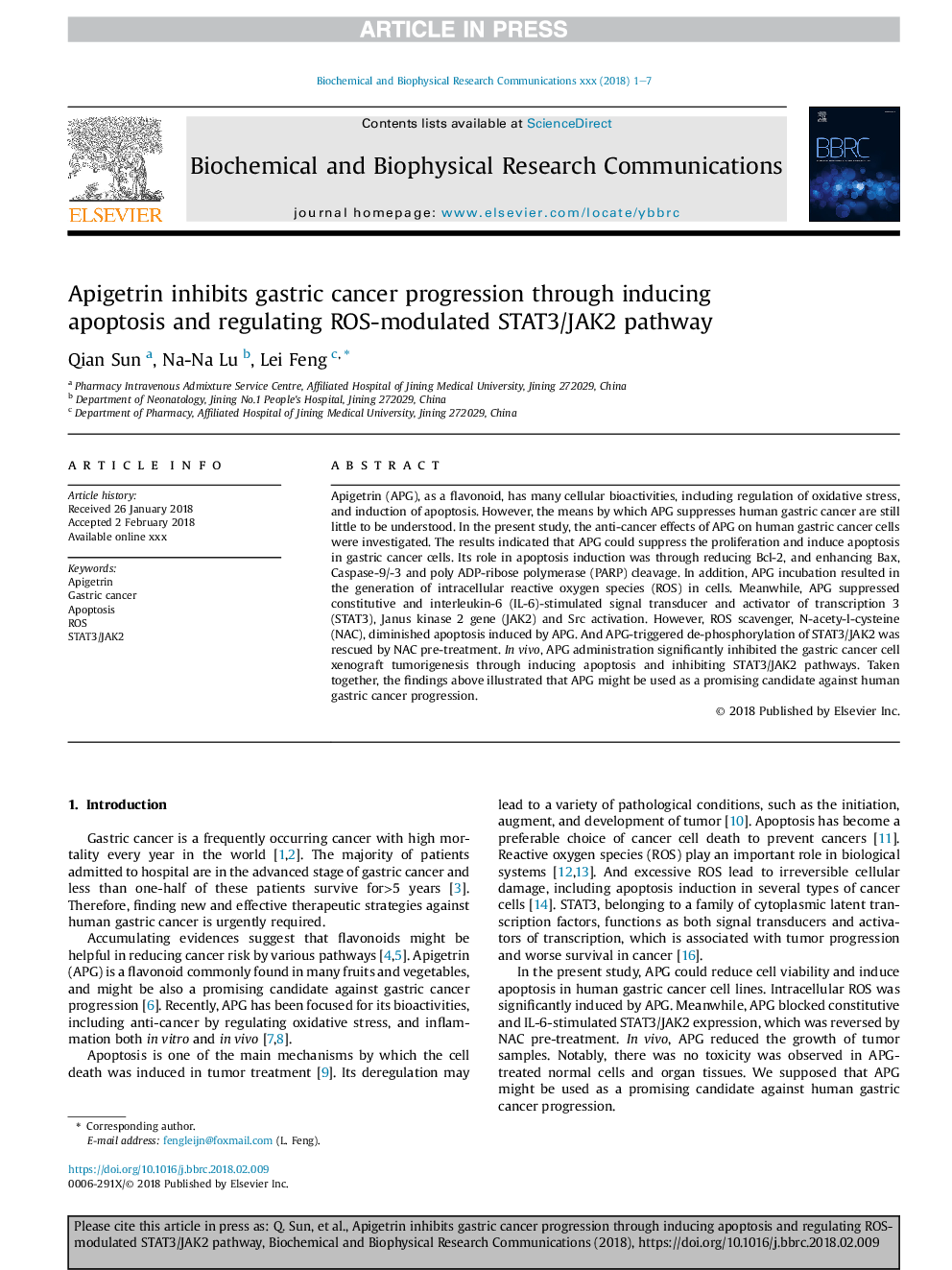| کد مقاله | کد نشریه | سال انتشار | مقاله انگلیسی | نسخه تمام متن |
|---|---|---|---|---|
| 8293747 | 1536747 | 2018 | 7 صفحه PDF | دانلود رایگان |
عنوان انگلیسی مقاله ISI
Apigetrin inhibits gastric cancer progression through inducing apoptosis and regulating ROS-modulated STAT3/JAK2 pathway
دانلود مقاله + سفارش ترجمه
دانلود مقاله ISI انگلیسی
رایگان برای ایرانیان
موضوعات مرتبط
علوم زیستی و بیوفناوری
بیوشیمی، ژنتیک و زیست شناسی مولکولی
زیست شیمی
پیش نمایش صفحه اول مقاله

چکیده انگلیسی
Apigetrin (APG), as a flavonoid, has many cellular bioactivities, including regulation of oxidative stress, and induction of apoptosis. However, the means by which APG suppresses human gastric cancer are still little to be understood. In the present study, the anti-cancer effects of APG on human gastric cancer cells were investigated. The results indicated that APG could suppress the proliferation and induce apoptosis in gastric cancer cells. Its role in apoptosis induction was through reducing Bcl-2, and enhancing Bax, Caspase-9/-3 and poly ADP-ribose polymerase (PARP) cleavage. In addition, APG incubation resulted in the generation of intracellular reactive oxygen species (ROS) in cells. Meanwhile, APG suppressed constitutive and interleukin-6 (IL-6)-stimulated signal transducer and activator of transcription 3 (STAT3), Janus kinase 2 gene (JAK2) and Src activation. However, ROS scavenger, N-acety-l-cysteine (NAC), diminished apoptosis induced by APG. And APG-triggered de-phosphorylation of STAT3/JAK2 was rescued by NAC pre-treatment. In vivo, APG administration significantly inhibited the gastric cancer cell xenograft tumorigenesis through inducing apoptosis and inhibiting STAT3/JAK2 pathways. Taken together, the findings above illustrated that APG might be used as a promising candidate against human gastric cancer progression.
ناشر
Database: Elsevier - ScienceDirect (ساینس دایرکت)
Journal: Biochemical and Biophysical Research Communications - Volume 498, Issue 1, 25 March 2018, Pages 164-170
Journal: Biochemical and Biophysical Research Communications - Volume 498, Issue 1, 25 March 2018, Pages 164-170
نویسندگان
Qian Sun, Na-Na Lu, Lei Feng,